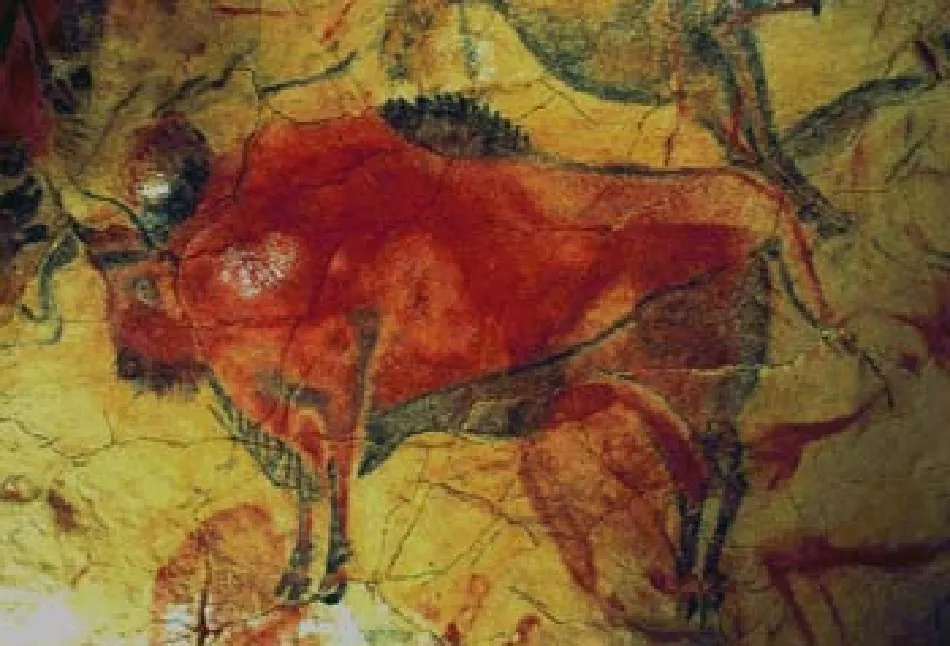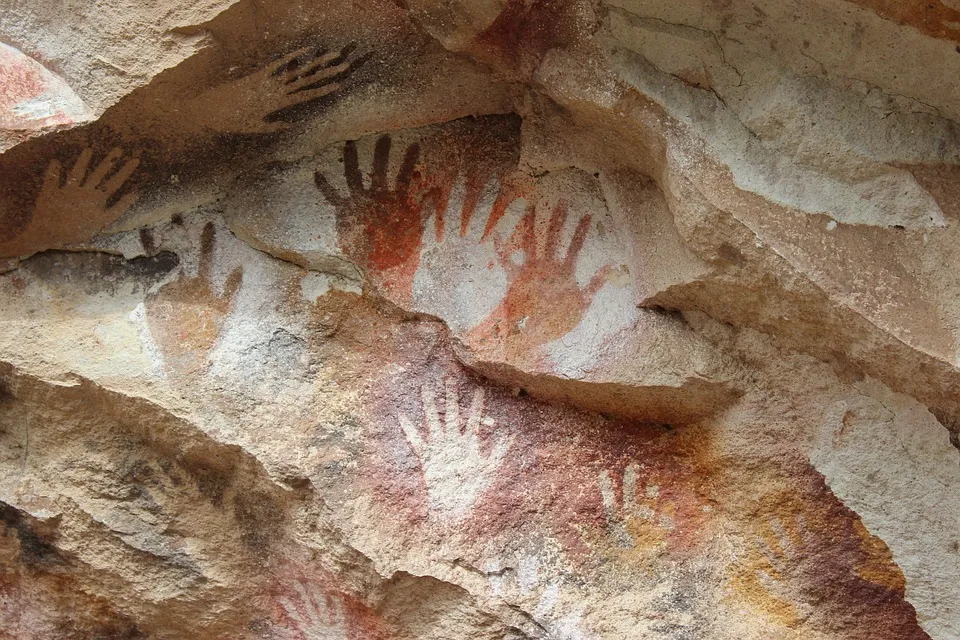Friends of the @theinkwell community.
I am leaving here for your kind readings a text of historical fiction, conceived for the weekly call of this beloved community.
I end my story with excerpts from a poem by René Char entitled La bestia innombrable, in which my writing was inspired.

Painter, gatherer and hunter
He had no way to speak, he had eyes to see danger and strong legs to run away. Perhaps he did have a voice, strong guttural resonances, screams, exclamations....
He accompanied his group across the great savannahs, along the same immense routes, which who knows how long they had been trodden by their own. They were looking for the help of a cliff or a topographical feature that would allow them to ambush the herds.
It was a time when there was no time, only the imperious unknown need that induced them to hunt large mammals, tired, as they were, of eating leaves, fruits, collecting seeds, insects, larvae.
He was a male. Just that, he was a male. He did, however, do different things. He had the urge to gather colored clays, charcoal scraps, fruit pits, transparent or shiny stones.
At the hour when the most experienced hunter would cry out, or exclaim in amazement, he had to forget his temptation to observe the world, whose forms he had defined, in an epiphany, as linear and curved. Then he would become engrossed in a frenzy that possessed him, and he would use his arrows, his spears, his pointed stones and the speed of his body as an instrument of hunting.
There he had been, coordinated with the others by instinct. Piercing the flanks of a young bison with his rustic pike. He was snorting and sweating, enervated by the smell and sight of blood. Around the prey, already downed, he was leaping, like everyone else, with his spear held high. The exclamations of all his equals had the same sound, the same rhythm. The high-pitched sounds that, in the euphoria of the hunt and in the infinite repetition, ended up becoming primordial songs.
Then he would withdraw. He would isolate himself to observe the panorama from afar and to review mental images:
He has seen herds of unmentionable beasts crossing the valleys, magnificent profiles in contrast with those of the mountains. He has seen beasts with big horns crossing rivers, animals with golden coats chasing another herd, graceful beasts with swollen bellies closing the parade of swift quadrupeds.
He has seen the difference in the shades of colors depending on the location of the sunlight.
After the hunt he has returned home. He has become himself again. He has pulverized the colored clays, crushed seeds, looked at the colorful treasures of his gathering. He looked at his pigment-stained hands and, in an inexplicable impulse, stamped his hands on the stones. He was surprised and shouted and everyone came to copy his gesture.With the passing of time, the different winds, the rains, the droughts, the snows... in the dim darkness of the cave it has traced a line and another line and another line. With a curve he has drawn a head on a body!
He has made the same drawing, once wider, once taller, once smaller.
He tried to make more complex scenes, animals running, crossing steppes, hunters chasing them, a campfire, a pregnant female... He was no longer just a male.
He has imagined that painting a bison is a way to secure the hunt. He painted it. The clan stops in front of his work, to touch it, before leaving for the hunt. There the presentiment and the emergence of words take place. With them, the emergence of a wider horizon.
He has no word for himself. He does not know that there are, like him, many others who wet the clays and made them moldable. He does not know that behind the farthest mountains other men are sculpting in stone beautiful Venuses, carving masks.
No one knows his name. Maybe he had no name. Perhaps he died very young, but his artistic inclination crossed the millennia. It is his genes that organized in a precise way the eyes, the brains, the hands of the whole generation of artists. They were all born from him.
To him we owe the astonishment that millennia later the poet has felt:
"An unnamable beast/ closes the march of the graceful flock/ like a buffo cyclops/ eight spikes adorn her/ divide her madness. (...) her sides, swollen and sagging are aching/ they go to empty themselves of their pregnancy (...) Thus she appears to me in the Lascaux frieze/ mother fantastically disguised..."


